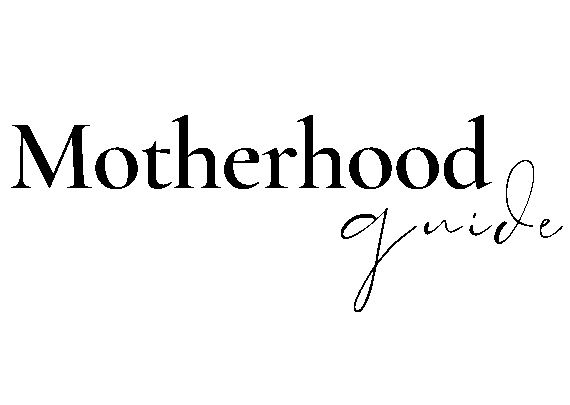How I’m Preparing My Brain for Menopause: The Countdown
What does menopause have to do with me? Well, as a 41-year-old woman, I have big dreams: to live to 110, work until I’m 85, and spend my final 25 years writing books that inspire others. Although I still feel young and stronger than ever, I know I can’t stop the aging process. Even with good genes that help me age gracefully, I can’t ignore the signs, my hair is graying, and my skin is slowly losing elasticity. Yes, I’m getting older, and while that might sound like a slow march toward a deadline, I choose to embrace it. As my favorite singer Noga Erez puts it, “I don’t know what really, really happens at the end of the road, but my trip is mad, I ain’t finished; I got loads!”
Since my future plans heavily rely on keeping my brain active, I’ve started preparing for menopause now even before it officially begins. I want to be ready for this change. My preparation consist of 3 goals:
1. I wish to see if I can naturally delay it
2. I do my best to make the symptoms and changes as easy as they can be
3. I’ll meet it with confidence and respect for my body when it hits
Understanding Menopause’s Stages
About a year ago, I began exploring the topic of menopause and how it truly affects us as women. I was shocked to discover just how under-informed I was about this crucial stage of life and how vulnerable we can feel during this time. It surprised me how little I had heard about it. I even caught myself feeling embarrassed to discuss menopause with my friends or my boyfriend, who is six years younger than me. In fact, when I first came across this topic, I would instantly mute any related videos the moment he entered the room. I now know that this wasn’t about him; it was about me and that inherited shame of being a woman. I had been taught to keep my period cramps private, even when the pain was overwhelming.
I was advised to showcase only the cute parts of pregnancy so I wouldn’t scare the man, and I had convinced myself not to speak about menopause, thinking I could just slip into it alone without making a fuss. After all, every woman goes through it, right? We manage, and you’ll manage too, they say.
And then I came across the work of Dr. Lisa Mosconi, a neuroscientist whose research on women’s brain health and menopause completely transformed my perspective. I had always associated menopause with symptoms like hot flashes and mood swings, but little did I know that menopause symptoms are not merely physiological as we’ve been led to believe, they actually begin in the brain, not the ovaries. Menopause is triggered by a decline in estrogen production, and while estrogen is produced in the ovaries, it’s in the brain that its effects are most felt. Estrogen plays a critical role in brain health, regulating everything from energy production to brain functionality. When estrogen levels drop, the brain undergoes changes that comes out as common menopausal symptoms, such as hot flashes, mood swings, and an increased risk of dementia and Alzheimer’s.
“Wait, I can’t write books with dementia, can I?” – I thought to myself some time ago. And after cornering myself in a fear-filled place, as I sometimes do, I one day chose to dive into the scary and learn if there was anything I could do now to improve my future situation. Thanks to Dr. Lisa Mosconi’s engaging and easy-to-understand publications and speeches, I crafted a “Menopause Drop, Cover, and Hold On Plan” for myself.
Just A Few Tinny Facts You Should Know About Menopause
For instance, did you know that during menopause, women can experience a 20-30% reduction in brain energy? This energy loss is not just about feeling tired, it can lead to cognitive issues such as memory lapses, brain fog and difficulty concentrating.
On top of that, menopause can lead to shrinkage in the brain’s gray matter, which controls vital cognitive functions like memory and decision-making. While some women’s brains adapt and bounce back, others may experience lasting changes.
Even more concerning, women are almost twice as likely as men to develop Alzheimer’s disease, and research suggests that menopause plays a significant role in this risk. In fact, 80% of people with Alzheimer’s are women. The neurological changes that take place during menopause are believed to increase susceptibility to neurodegenerative diseases.
Women’s health has historically been under-researched. There was a time when scientists like Paul Broca (1824–1880), Robert E. Peary (1856–1920), and even Charles Darwin (1809–1882) widely propagated the notion that women’s brains were smaller than men’s, suggesting that this difference indicated intellectual limitations. These biased studies laid the groundwork for over a century of beliefs supporting male superiority, influencing women’s rights to vote, pursue education, and be recognised as equal members of society.
My Plan for Preparing for Menopause
Speak up, Educate Myself, and My Friends
Next comes menopause, which is officially diagnosed after a woman has gone a full 12 months without a menstrual period. This is when the ovaries significantly reduce estrogen production, signaling the end of menstruation. After menopause, women’s risk of heart disease increases significantly. In fact, heart disease is the leading cause of death for women, with 1 in 3 women dying from heart disease. Women can lose up to 20% of their bone density in the first five to seven years after menopause, increasing the risk of osteoporosis and fractures. Around 50% of women report experiencing mood swings during perimenopause and menopause. Moreover, women going through menopause are at a higher risk for developing anxiety and depression. Hormonal changes during menopause can contribute to weight gain, with many women experiencing an average weight increase of 5-10 pounds during this transition.
Finally, we arrive at postmenopause, which begins once menopause is confirmed. While some women may find that certain symptoms, like hot flashes, start to fade, others might continue to grapple with lingering challenges. This stage also heightens long-term health risks, making it crucial for women to focus on lifestyle changes, such as diet and exercise, and to seek medical advice to support their health.
Understanding these stages empowers me to be better prepared, and hopefully, navigate the complexities of menopause with more confidence, knowing that I’m neither going crazy nor dying. I’ll have supplements needed, or even some medicaments to help me and will guide my loved ones on how they can help me.
2. Hydrate Myself With Good Quality Water
Hydration is vital, especially during menopause when symptoms like dry skin and vaginal dryness become common. Staying hydrated helps keep your brain sharp and supports overall health. However, just drinking 2.5 liters of water isn’t always enough. It’s essential to ensure that the water you drink contains the necessary electrolytes and minerals like potassium, sodium, and magnesium, which help the body retain fluids and prevent dehydration. Foods with high water content, such as cucumbers and watermelon, can also boost hydration.
In countries with hot climates, like Malta, it’s even more critical to maintain electrolyte balance because excessive sweating can lead to the loss of essential minerals. Since tap water in Malta is often purified and lacks these key electrolytes, you may just be consuming fluids without replenishing the vital elements your body needs. To address this, I now regularly include electrolytes in my daily routine to stay properly hydrated and avoid dehydration, especially given the climate.
3. Exercise Daily (And I Mean It)
It’s old news that regular exercise helps manage weight, especially since hormonal changes during premenopause and menopause can make it a challenge. What’s often less promoted is that exercise also strengthens bones, which is crucial as estrogen levels drop and the risk of osteoporosis increases.
But here’s something you might not hear often: exercise also works wonders for brain function! It increases blood flow to the brain, boosting cognitive function, memory, and focus. Plus, physical activity releases endorphins, those lovely feel-good hormones that help fight anxiety and depression. And let’s not forget, exercise can enhance sleep quality, which often takes a hit during menopause, leading to even better brain health. So, getting moving isn’t just beneficial for your body; it’s a total game changer for your mind!
Personally, I make it a point to exercise daily, and my favorite workout is Pilates, with or without weights. I do my sessions at home for about 20 to 30 minutes each day. In the summer, I add 20 minutes of active swimming to the mix, and in the winter, I usually warm up with 10 to 15 minutes on the bike before my Pilates.
I started my fitness journey almost two years ago, and now, at 41, I can confidently say I’m in the best shape I’ve ever been!
4. Prioritise Sleep
Prioritising sleep during premenopause and menopause offers significant long-term benefits for both physical and mental health. Quality sleep helps regulate hormones, which can reduce symptoms like hot flashes and mood swings. It also betters cognitive function, improving memory and focus that may be impacted by hormonal changes. Furthermore, good sleep stabilises mood, reducing the risk of anxiety and depression, and it plays a crucial role in weight management by controlling hunger hormones.
Additionally, sleep supports heart health by lowering stress and inflammation, which are heightened during these transitions. It is essential for bone health, aiding the production of hormones that promote bone density, which is especially important as the risk of osteoporosis increases. Lastly, prioritising sleep boosts the immune system, helping the body fight off illnesses. In essence, making sleep a priority can create a positive ripple effect on overall health and well-being during this significant life stage.
Cutting back on coffee and alcohol, eating well, and getting regular exercise can do wonders for your sleep, which is essential for your overall health. One key thing to remember is not to skip that precious deep sleep window, usually between midnight and 4 AM. During this time, your brain is hard at work cleaning out toxins and amyloid plaques linked to Alzheimer’s and other waste. In my opinion, prioritising good quality sleep is a foundation of it all, don’t water it down.
5. Modifying My Diet and Nutrition
A menopause-friendly diet can help manage symptoms and reduce the risk of health issues associated with this stage of life. Here are some key recommendations that I follow:
- Increase Omega-3 fatty acids. Omega-3s, found in fatty fish like salmon, sardines, flaxseeds, and walnuts, are well-known for their anti-inflammatory properties. These healthy fats are crucial for reducing the risk of cognitive decline, heart disease, and managing menopausal symptoms like mood swings and depression.Though I followed a vegetarian diet for more than 15 years, I’ve recently come to appreciate the benefits of the Mediterranean diet. Since I’m fortunate enough to spend more time in small fisherman towns in Greece, I’ve allowed myself to indulge in fresh, high-quality fish and seafood on occasion. This has not only been a treat but also a step towards bolstering my health as I age.
- Use Vitamin C, Calcium and Vitamin D: Bone health becomes critical during menopause, as we tent to start loosing bone density. Ensure you’re getting enough calcium through dairy products, leafy greens, or fortified plant-based milks. Vitamin D helps your body absorb calcium, so consider sunlight exposure or a supplement if needed. Vitamin C is a powerful antioxidant that helps protect the brain from damage caused by free radicals, which are harmful molecules that can speed up aging and affect brain function. The brain uses a lot of energy, which makes it more prone to damage from oxidative stress. Vitamin C helps neutralise these harmful molecules, reducing the risk of conditions like Alzheimer’s and Parkinson’s disease. It also supports the production of important brain chemicals, like dopamine and serotonin, which help regulate mood and thinking. During menopause, when estrogen drops, the brain becomes more vulnerable to oxidative stress, so getting enough Vitamin C is essential to protect your brain and keep it working well.
- Add more phytoestrogens from legumes to your diet is a great idea, yes, exactly like Samantha stuffing her cheeks with hummus in Sex and the City 2! In my opinion, planting this idea in millions of women’s heads was a great and very caring initiative from the movie directors. Phytoestrogens can mimic estrogen in the body, which may help with menopausal symptoms such as hot flashes, night sweats, and mood swings. By providing a natural source of estrogen-like compounds, legumes can help smooth out hormonal fluctuations. Additionally, legumes are rich in calcium and magnesium, essential for maintaining strong bones. Including them in your diet can help protect your skeletal health during this critical period. Legumes are also known to support heart health by helping to lower cholesterol levels and improve blood circulation. As estrogen levels drop during menopause, the risk of heart disease can increase, making heart-healthy foods like legumes even more important.
How Much to Include in Your Diet. If possible, I try to include legumes in our meals daily. I like to add them to salads, soups, stews, curries, or as a protein source in various dishes. About half a cup of cooked legumes (such as beans, lentils, green peas, or chickpeas, and soy products) provides a good source of phytoestrogens, along with other essential nutrients. - Limiting coffee to one cup in the morning can positively impact your brain during preminopause and menopause in several ways. It can reduce anxiety and jitters, helping to stabilise your mood during hormonal fluctuations. This practice also improves sleep quality by preventing caffeine from interfering with your ability to fall and stay asleep. Additionally, drinking less coffee improves hydration, which is crucial for brain health, especially when experiencing symptoms like night sweats.By moderating your caffeine intake, you may also help lessen the severity of menopause symptoms, such as hot flashes and mood swings. Finally, this simple adjustment supports overall cognitive function and protects brain health in the long run.
- Limiting Sugar and Processed Foods: High sugar intake can worsen hot flashes and weight gain, while processed foods can contribute to bloating and fatigue. Stick to whole, minimally processed foods for better symptom management.
This diet, backed by experts like Dr. Lisa Mosconi, emphasises brain and body health during menopause, focusing on nutrition that supports cognitive function, heart health, and hormonal balance.
Preparing for Menopause: It’s Not About Getting Old, It’s About Being Smart!
While I understand that aging is unavoidable, I’m trying to equip myself with knowledge and tools to make this transition smoother. I want to be active with my goals and dreams, present for my daughter, her future family, and all the experiences life has to offer.
Every woman experiences menopause, and it’s time we talk about it openly, honestly and shame free. I want to join women who are working hard in breaking the cycle of silence and creating a space where women can share their experiences and support one another.
This is my journey, and I invite you to join me as we navigate the path of menopause together, armed with knowledge, empowerment, and the understanding that aging is not the end but a beautiful evolution toward greater wisdom and strength.
Want to share your Menopause experience? – Check an Individual Online Session Designed to Master Self Love & Self-Care HERE












